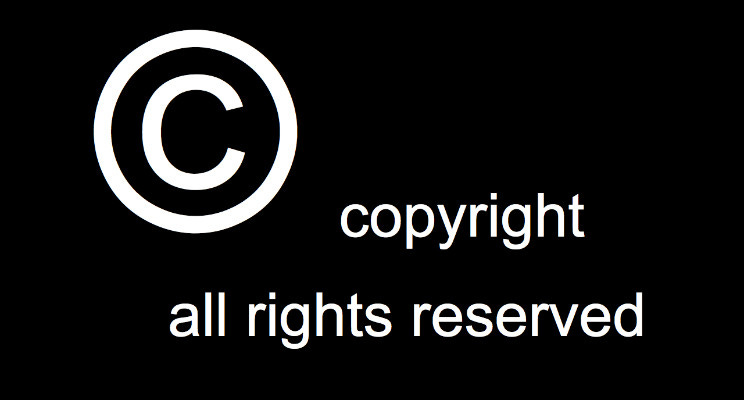Who Owns the Intellectual Property Rights of a Movie or TV Series?
The public feud over Netflix's Nigerian hit "Shanty Town" underscores the importance of understanding intellectual property in film, the power of contracts, and how disputes are resolved.
Everyone wants to receive credit for a job done, and an even louder pat on the shoulder for one done really well. Whether the final product turns out to be good or bad, chances are you wouldn’t take it lightly if someone else stepped in to take your glory.
As the recognized owner of a product, especially one with public clout and associated financial merits, you earn the praises associated with your good work and the right to negotiate and earn returns on your investment via any means possible. You could decide to go to London to go show the queen king or let your product sit idly in a dark cupboard, collecting dust if you so desired. The bottom line is, the product is yours and you’re in charge of calling the shots on what to do with it.
Likewise in the film industry. Owning the rights to a commercial hit often brings the greatest rewards. It also grants the owner the power to decide the franchise's future, potentially leading to even greater financial success. It's a simple truth: who wouldn't want to make more money from their hard work?
The key question here is: How do we determine the ownership of intellectual property rights for a movie or TV series? Who owns what, why, and how?
We explore how the IP rights of a film are determined, focusing primarily on the Nigerian film market and then the rest of Africa. We will cite recent examples of IP rights disputes in the news and possible outs for creatives caught in such messy battles. Let's dive in.
What is copyright in film?
As a figment of the human mind, films fall under a category of property known as intellectual property. Copyright in film refers to the legal protection granted to the creators of original works in the film industry. It gives the creators exclusive rights to reproduce, distribute, perform, and display their work. This means that others cannot use or distribute the film without the permission of the copyright owner. Copyright protection extends to various aspects of a film, including the screenplay, dialogue, music, characters, and visual elements. It helps protect the financial and creative interests of filmmakers and encourages the production of new and original works.
How does a film get made in Nigeria?
To better understand how copyright works in the film industry in Nigeria, we need to revisit how films get made in this region.
Like the saga of the chicken and the egg, in Nollywood, there’s no one set rule for what comes first. A screenwriter may have a story and be in search of a producer with funds to buy and make the film, or a producer/production house may have an idea and be on the lookout for a competent screenwriter to translate that idea into actionable words and dialogue. Whichever it is, we can all agree that everything starts with the screenplay, the ultimate blueprint for any film project. This screenwriter, whose creative power is at play in interpreting an idea to craft an elaborately detailed world for the film, would have to be paid. This exchange of one’s work for money is typically done over a contract where the details of transactions are spelled out. A contract is very important for everything done during the process of making a film.
The screenwriter typically retains certain rights to a script even after selling it to a producer. These rights can vary depending on the terms of the sale and the specific agreements made between the screenwriter and the producer. In many cases, the screenwriter will retain rights such as the right to be credited as the author of the script. They can also retain the right to receive royalties or other payments based on the performance of the film, and the right to approve any changes made to the script, depending on their pedigree and level of clout in the industry. However, the producer will usually acquire the exclusive rights to produce, distribute, and otherwise exploit the film based on the script.
Once the script is ready, the producer(s) can go ahead to hire the rest of the crew — the director, cinematographer/director of photography, costume designer, editor, production manager, actors, gaffer, sound mixers, and so many more. For each of these people hired, a contract would also need to be signed with the producer(s) stipulating what is expected of them to deliver their duties and explicitly stating the transfer of rights to the products they create during the project to the producer for a certain amount. Just like when we talked about the screenwriter, the copyright to the film is owned by the producer or production company, rather than individual crew members. However, crew members may retain certain rights to their work, such as the right to be identified as the author of their work and the right to receive royalties or other payments for the use of their work (eg. the director).
The power of a good contract
The power of a good contract in negotiating to join a film project cannot be overstated. It is essential to protect the interests of all parties involved in a film’s production and ensure that the project is completed successfully. A well-crafted contract is the cornerstone of a successful film production. It serves as a roadmap, guiding the parties involved through the complexities of the project and ensuring that everyone's rights and responsibilities are clearly defined.
Here are some key aspects of a good contract in the context of film production:
Clarity and specificity: Clearly outline the scope of work, services, timeline, and compensation to avoid misunderstandings.
Rights and ownership: Specify ownership of the finished film and any intellectual property rights.
Payment terms: Clearly state the compensation amount, payment schedule, and expense responsibilities.
Credits: Outline how credits will be given to each party involved in the production.
Confidentiality: Include provisions to protect sensitive information.
Dispute resolution: Include a mechanism for resolving disputes, such as mediation or arbitration.
Compliance: Ensure compliance with all applicable laws and regulations.
What happens when there’s a dispute?
For as long as humans have existed, conflicts have existed alongside us. A good contract is supposed to help prevent issues of disagreement over the rights associated with a film project, but sometimes friction is inevitable as we could see from a news report concerning Ini Edo and Chichi Nworah locking horns over the ownership of the hit Netflix 2023 series Shanty Town.
Here’s the gist: Following the success of Shanty Town on Netflix, the streamer wanted a second season and opened discussions with Chichi Nworah (credited as Producer and Executive Producer). On January 15, 2024, Ini Edo (credited as Producer) issued a cease and desist letter to Netflix, urging them not to proceed with a deal with Nworah for the series’ sequel. Ini Edo claimed that Nworah alone didn’t have the right to negotiate about the fate of Shanty Town as two other producers (Edo and Joy Odiete) were all entitled to five percent of the proceeds. Chichi Nworah issued a press release on February 22, 2024, refuting the claim and asserting her sole ownership of the series.
While we can’t be sure of the exact nature of the contract the trio signed, but here’s what you can expect if you find yourself in a similar contest over IP Rights.
The Way Forward
In such disputes, it's crucial to understand the nuances of intellectual property rights. These rights are often complex, especially in creative industries where collaboration is common. Contracts and agreements should clearly define ownership and rights to avoid ambiguity. When disputes arise, parties can seek resolution through arbitration or mediation, which can be more cost-effective and less adversarial than litigation. However, if an agreement cannot be reached, litigation may be necessary to resolve the dispute, like in the ongoing case between Ewa Cole vs. Funke Akindele. Cole alleges that two songs she recorded for Akindele’s 2023 Prime Video series SHE Must Be Obeyed —“Bhad Gyal” and “OPOOR”— were used without her consent or adequate financial compensation.
It's essential for creators, producers, and all involved in the entertainment industry to be aware of their rights and responsibilities regarding intellectual property. Clear communication and understanding of contractual terms can help prevent disputes and ensure that all parties are fairly compensated for their contributions.
How to avoid copyright disputes when making your film
Define ownership: Clearly define who owns the intellectual property rights to the film, including the script, characters, and any other creative elements. This should be outlined in contracts with writers, directors, and other key contributors.
Include all parties: Ensure that all parties involved in the production, including producers, directors, writers, and actors, are included in the agreement and understand their rights and responsibilities.
Specify rights: Clearly outline the rights granted to each party, including the right to use the film for distribution, marketing, and other purposes. This should include any limitations or restrictions on the use of the film.
Document agreements: Document all agreements in writing and ensure that they are signed by all parties involved. This helps avoid misunderstandings and provides a clear record of the agreed-upon terms.
Seek legal advice:
Consider seekingDefinitely seek legal advice from an entertainment lawyer who can help draft contracts and ensure that all parties' rights are protected.Review agreements: Regularly review and update agreements to reflect any changes in the production or distribution of the film.
In conclusion, understanding and protecting intellectual property rights is crucial in the film industry to avoid disputes and ensure that all contributors are fairly compensated for their work. By defining ownership, including all parties in agreements, specifying rights, documenting agreements, seeking legal advice, and regularly reviewing agreements, filmmakers can mitigate the risk of disputes and focus on creating compelling and original content. As the industry continues to evolve, it's essential for filmmakers to stay informed and proactive in protecting their intellectual property rights.
A Little Ask…
Each edition of The Orange Pill Nollywood involves long hours (days and weeks even) of research, thinking, writing, editing, and design. If you find the insights valuable, here's a simple ask: like the post and/or leave a comment, subscribe (if you haven't), and share it with at least two people you think will love it. Your support means a lot! 🧡










